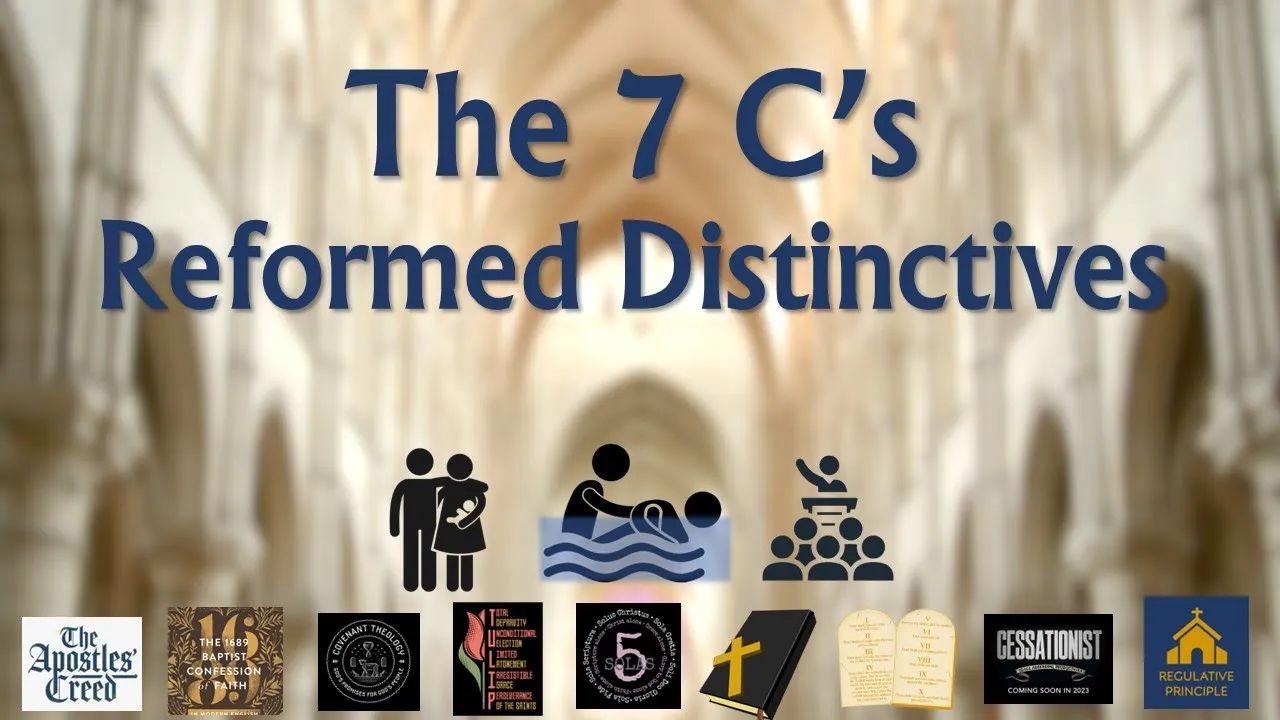
6. Reformed Baptist Distinctives: Calvinistic
5 views
RB Distinctive Playlist: • RefBaptist Distinctions
Web: www.ReformedRookie.com

- 00:07
- Next, we're Calvinistic, and this is the one where everybody thinks, oh, all Calvinists are reforming.
- 00:12
- That's not necessarily true. So commonly known as TULIP, the doctrines of grace are what define a believer as Calvinistic.
- 00:19
- They highlight the inability of man and emphasize the power and the glory of God. So every time
- 00:25
- I read the scriptures, I see over and over and over again what man cannot do. Man cannot submit to God's law, nor will he do so.
- 00:34
- Man cannot do good, man cannot seek after God, man cannot, cannot, cannot, and I always see what
- 00:40
- God can do. God can do whatever he pleases. God turns the king's heart in his hand like a watercourse wherever he pleases.
- 00:47
- I see what man can't do and what God can do, and that's what the doctrines of grace represent. However, there's competing doctrines that keep telling me about what man can do.
- 00:58
- Men can repent, men can believe, men can keep God's commandments, and God's a gentleman.
- 01:03
- He can't violate their free will. So any theology that tells you about the power and the ability of man and diminishes the power and ability of God has to be rejected.
- 01:15
- Reject that. God does whatever he pleases, period, end of report. How can the impotent, sinful creature do whatever he wants and make salvation possible in and of ourselves?
- 01:28
- We can't. It's the pride of man that wants to push that forth. Read the scriptures with a critical eye and see all the inabilities that God portrays on man and all of the ability and the sovereignty and the power that we read about God in the scriptures.
- 01:44
- There's no comparison. So Calvinism is the theological system associated with the reformer
- 01:50
- John Calvin that emphasizes the rule of God over all things as reflected in its understanding of scripture,
- 01:57
- God, humanity, salvation, the church. In popular vernacular, Calvinism often refers to the five points of Calvinistic doctrine and in its broader sense is associated with reformed theology.
- 02:08
- So in order to be reformed, you would need to be a Calvinist, but if you're a
- 02:14
- Calvinist, that doesn't necessarily mean you're reformed. You may not hold to a creed. You may not hold to a confession and some of the other things we're going to go through.
- 02:21
- In fact, a new term came out in the last 25, 30 years called
- 02:26
- New Calvinism. So you could be a Calvinist and charismatic. You could be a
- 02:32
- Calvinist and egalitarian. You could say that women could hold the office. That's not reformed.
- 02:38
- It could be Calvinistic, but it's not reformed. Big difference. The doctrines of grace were not created to summarize what the reformers believe, rather they were created to refute the five points of Arminianism put forth in the remonstrance.
- 02:52
- The word remonstrance literally means an expression of opposition or protest.
- 02:58
- So where did Arminian doctrine come from? Jacob Arminius. He was a teacher in Germany somewhere and what he did was he was teaching his students about his understanding of theology and they came up with the five points of Arminianism.
- 03:13
- Now the church heard these five points and disagreed with them and said, no, no, no, we have to have a meeting, a synod.
- 03:18
- So they had a synod. They examined all the doctrines that Arminius was putting forth and came up with five points of refutation to each of their five points of doctrine.
- 03:29
- So the five points of Calvinism are not what Calvinists put forth to express their doctrine.
- 03:36
- It's the five points that they put out to refute the errors of Arminianism. So don't let an
- 03:41
- Arminian say, oh, you guys created this system. You guys created the system. We just came along and corrected you. These five points are a summary of the canons of Dort which in turn were the judgments of the synod of Dort in opposition to Arminian teaching.
